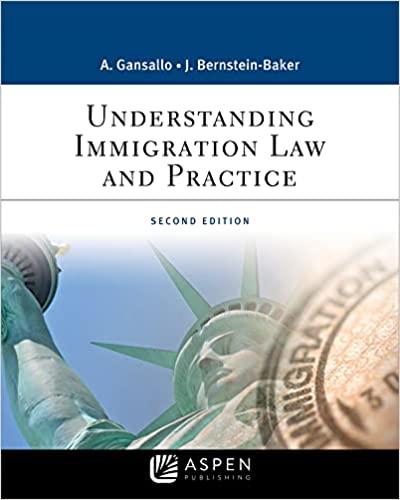Question
Steve is a pre-existing client of Bill, a financial planner. Bill has provided financial advice to Steve for the past 5 years and Bill is
Steve is a pre-existing client of Bill, a financial planner. Bill has provided financial advice to Steve for the past 5 years and Bill is very familiar with Steve's financial affairs. Owing to losing his job due to Covid-19, Steve is hoping to restructure his investments into a more conservative fund, which will provide a more consistent return whilst Steve is unemployed. Steve communicates these wishes to Bill. Bill looks into some of the options his firm is currently recommending and settles on the 'SuperDuper' Fund which has yielded healthy returns in every one of the past 12 years. Bill mentions this performance to Steve and he is easily swayed. Steve transfers almost all of his investment account ($1,000,000) funds to the Super Duper Fund.
Whilst receiving advice from Bill, Steve enquires about the prospects of investing in cryptocurrency. Bill states that he has not previously advised clients on cryptocurrency investment. However, he notes the opportunities for significant returns and has heard 'goodthings' about such investments. Steve leaves Bill's office happy and decides to invest $200,000 in the newest cryptocurrency, Not-A-Scam Coin. He performs no research on the investment whatsoever and takes Bill's endorsement as sufficient evidence of the prospects of a healthy return. With Steve's financial future now secure, he decides to take his wife, Beth, on a round-the-world trip and spends much of his savings in the process (upwards of $50,000).
A year later, Steve's investments are performing poorly. Not-A-Scam coin turned out to be a disastrous investment with Steve losing all of his initial $200,000 investment. Additionally, the Super Duper Fund is down 20%. The Australian market as a whole is down 15% on the previous year, but the Super Duper fund has taken an even larger hit, as it is being dragged down by its investment in several airports which are suffering huge losses, due to Covid-19. Even worse, not a single company in the portfolio paid out a dividend, which was consistent across the market. As it turns out, Bill was extremely busy when he gave Steve the advice a year ago, and his research was not as thorough as it would usually be. He did not notice the high portfolio weighting of airport shares and probably would have selected a different option had he known of this.
Cryptocurrency is a challenging proposition within the financial planning industry. Despite the high risks, many clients are now asking for advice on such investments. The Financial Planning Association of Australia (FPA) advises that its members should not recommend cryptocurrency to its clients as a potential investment opportunity, but if clients raise the matter themselves, it is necessary for members/ financial planners to warn of the high-risk nature of the investment. Due to the increasing interest from clients, professional seminars exist to help financial planners navigate cryptocurrency advice to their clients. Bill had previously looked into these seminars but had not been able to afford the significant cost (each1hour seminar cost more than $1,000).
Unfortunately, due to these significant losses, Steve's lack of income, and lack of savings, he was unable to keep up with his mortgage repayments. Steve's bank foreclosed on his homeand sold the property at auction for significantly less than it was worth. The property was worth $1,000,000 pre-covid and was sold at auction for $650,000. Steve is especially frustrated as he has since secured employment and if he had received the $20,000 in dividends he was expecting, his house would have been safe. Steve is furious and wishes to sue Bill for providing negligent advice.
Advise Steve as to his prospects in a claim for negligence against Billfor the losses incurred as a result of the Super Duper Fund, the cryptocurrency advice, and the sale of Steve's house. In your answer, you should use the ILAC method as taught in workshops, and refer to the relevant provisions of the Civil Liability Act 2003(Qld) as well as the supporting common law. You should discuss all three (3) elements of negligenceand consider possible defences. You only need to discuss Bill's potential liability under the tort of negligence. You do not need to discuss any liability under contract law, or any other causes of action.
Step by Step Solution
There are 3 Steps involved in it
Step: 1

Get Instant Access to Expert-Tailored Solutions
See step-by-step solutions with expert insights and AI powered tools for academic success
Step: 2

Step: 3

Ace Your Homework with AI
Get the answers you need in no time with our AI-driven, step-by-step assistance
Get Started


